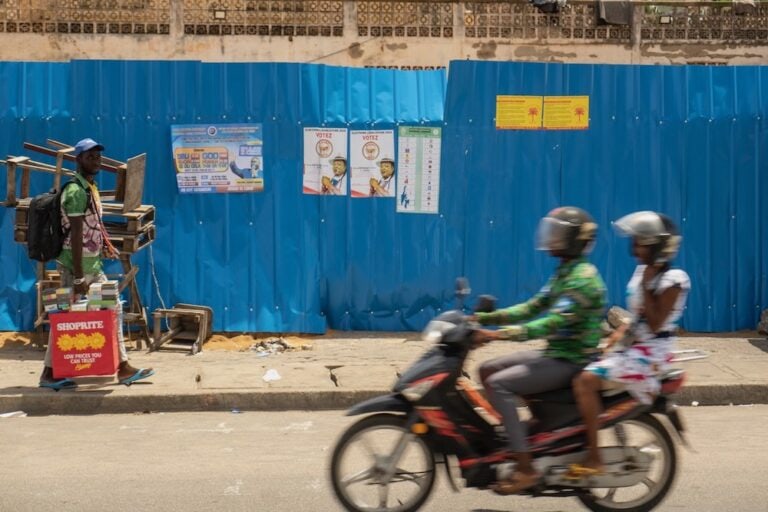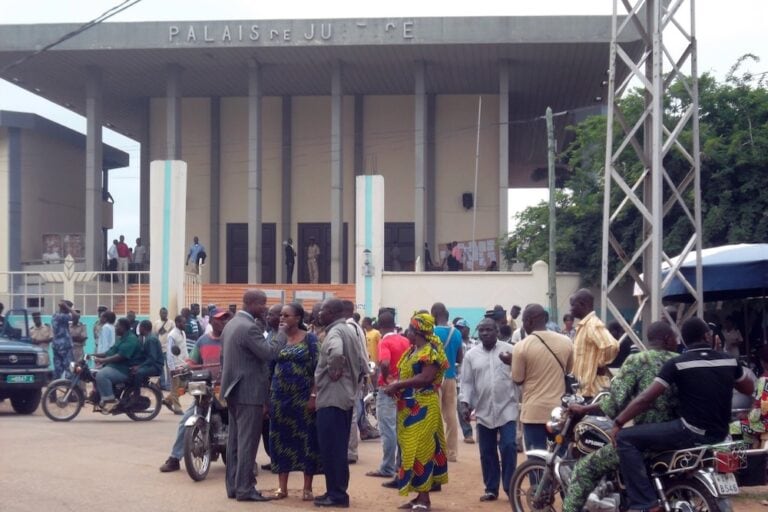(CPJ/IFEX) – In a 10 March 2003 letter to President Gnassingbé Eyadéma, CPJ expressed its deep concern about increased restrictions on press freedom in Togo ahead of presidential elections, which are scheduled for June. The organization is particularly alarmed by last week’s closure of private radio station Tropik FM, based in the capital, Lomé. On […]
(CPJ/IFEX) – In a 10 March 2003 letter to President Gnassingbé Eyadéma, CPJ expressed its deep concern about increased restrictions on press freedom in Togo ahead of presidential elections, which are scheduled for June. The organization is particularly alarmed by last week’s closure of private radio station Tropik FM, based in the capital, Lomé.
On Friday 28 February, the High Authority for Audio-visual Communications (HAAC), Togo’s official media regulatory body, ordered Tropik FM closed indefinitely. Station director Albert Biki Tchékin said that on 27 February, President Eyadéma called him into his office to face accusations made by some of his subordinates that Tropik FM was allowing the opposition to insult the ruling regime on the air.
According to Tchékin, the accusations stem from the station’s weekly program “Civic and Political Forum,” which includes debates on social and political issues, as well as comments from callers. The 22 February edition of the show featured a debate on the upcoming presidential elections, during which guests and audience members questioned President Eyadéma’s apparent intention to run for a third term in office, a right granted to him in December 2002, when the Parliament voted to allow him to stand for another term.
When contacted by CPJ, Tchékin denied that the station’s programming was biased, saying that “Civil and Political Forum” provides both pro-government and opposition viewpoints. Tropik FM is currently in negotiations with the government to reopen the station.
This is not the first time that Togolese authorities have censored radio stations for airing criticism of President Eyadéma’s rule. On 30 January, police closed the offices of the private Nana FM, only to reopen them later that evening. This harassment came after Nana FM had broadcast earlier that week a discussion between a youth group supporting the opposition and another aligned with the ruling Rassemblement du Peuple Togolais (RPT) about President Eyadéma’s government and his possible run for a third term, local sources said.
On 7 February 2002, the government closed the private Radio Victoire (see IFEX alert of 12 February 2002). Though officials claimed that that the broadcaster was closed because its license had expired, local sources believe the station was shuttered for its programming, which frequently criticized the RPT. A few months earlier, in November 2001, the HAAC had banned two Radio Victoire news programs that it considered “controversial” and “defamatory” (see IFEX alert of 4 December 2001). The broadcaster remains off the air.
CPJ has written President Eyadéma on several occasions about official repression of the press. In August 2002, the organization voiced alarm about a new amendment that increased prison sentences for violating Togo’s already harsh press laws (see IFEX alert of 28 August 2002). That, along with repeated government censorship of the private press, has made Togo one of the most repressive media environments in West Africa. Tropik FM’s closure and the harassment of Nana FM are further evidence of President Eyadéma’s government’s willingness to silence critical voices.
Recommended Action
Send appeals to the president:
– calling on him to do everything in his power to see that Tropik FM is allowed to resume broadcasting immediately
– urging him to take steps to repeal Togo’s restrictive press code, and to ensure that the Togolese media are able to operate freely, without fear of reprisal
Appeals To
President Gnassingbé Eyadéma
C/o Embassy of the Togolese Republic
2208 Massachusetts Avenue, NW
Washington D.C. 20008
United States of America
Fax: +1 202 232 3190Please copy appeals to the source if possible.


